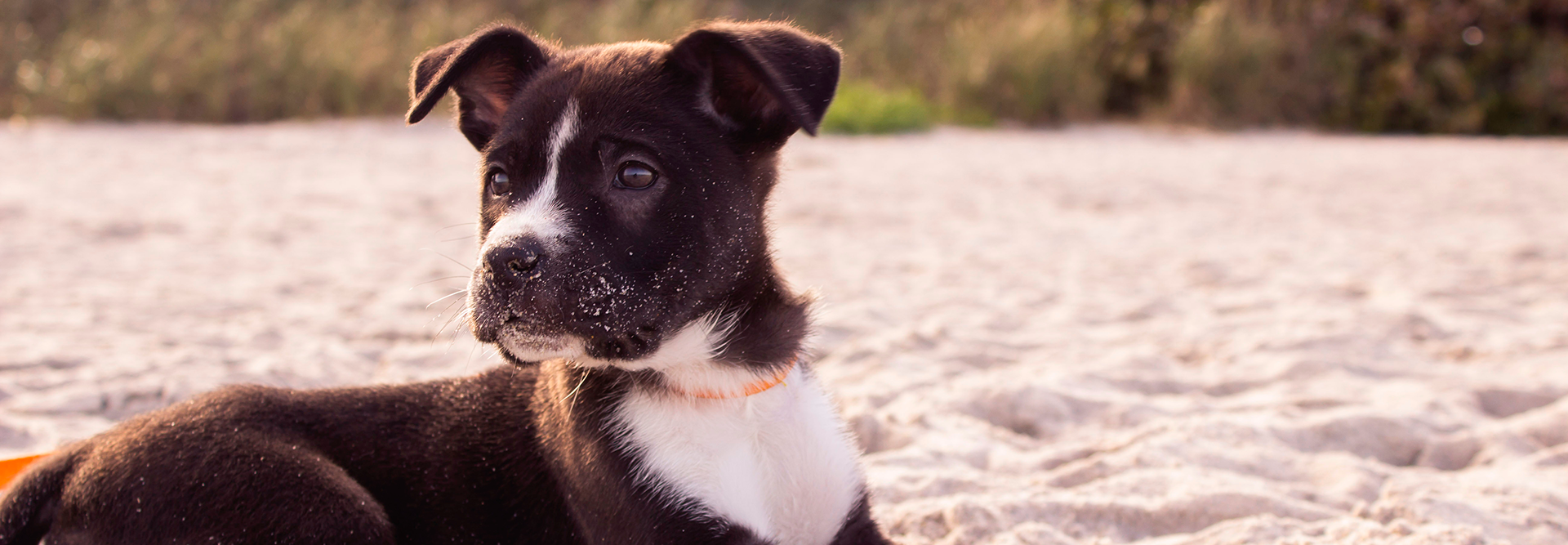
Keeping your puppy spiffy goes beyond hair grooming, and includes dental care and health. Many puppy parents neglect their puppy’s teeth, leading to various oral diseases that can be extremely painful. Your puppy deserves healthy, clean teeth so that they can live a happy life by your side. Since February is National Pet Dental Health […]
Keeping your puppy spiffy goes beyond hair grooming, and includes dental care and health. Many puppy parents neglect their puppy’s teeth, leading to various oral diseases that can be extremely painful. Your puppy deserves healthy, clean teeth so that they can live a happy life by your side.
Since February is National Pet Dental Health Month, we at Petland want to encourage puppy parents to pay close attention to their fur-baby’s teeth. Read on to learn how you can care for your puppy’s pearly whites!
A healthy dog mouth is a key sign of exceptional health and hygiene. With clean, white teeth, your furry friend can play and be themselves without feeling discomfort. To properly care for your pup’s teeth, make sure you know what a healthy dog mouth looks like first.
Like in humans, healthy dog teeth are free from plaque and tartar. Plaque is a sticky coating that contains bacteria; tartar are hardened calcium deposits that form on the teeth. If left untreated, your puppy can develop serious periodontal disease, which often causes bad breath.
Depending on their age, your puppy’s mouth should have a set of 28 temporary teeth (also called puppy or milk teeth). Once they reach 14 to 30 weeks of age, their milk teeth will eventually be replaced by 42 adult teeth. Your puppy’s teeth shouldn’t be jagged or broken. Their tongue should be moist, and free of lumps and cuts.
Don’t freak out if your puppy’s gums are dark as some breeds have natural dark gums. Ask your vet about your fur-baby’s gums, mouth, and any concerns you have about dental care. Most importantly, start your puppy’s dental care routine early, even if they still have their puppy teeth. Your puppy will grow used to having their teeth brushed, making it easier when they become an adult.
Puppies can’t take care of their teeth the way we can, so they depend on us for their dental care routine. Here are a few great ways you can keep your furry friend’s mouth clean:
Brush your puppy’s teeth. If you aren’t sure how to brush your puppy’s teeth, do not rush into it, and follow the next steps:
When choosing a toothpaste, always pick a canine toothpaste over a human one. Dog toothpaste is safe for your puppy to swallow. It also comes in yummy flavors, which helps make tooth brushing easier. Ask your vet or check out Petland for dog toothpaste.
Use dog tooth wipes. Sometimes life gets in the way of your puppy’s dental routine. That’s where dog tooth wipes come in handy. These wipes help you clean leftover food, plaque, and bacteria from their teeth. Dog tooth wipes do not replace regular tooth brushing but it gives your puppy’s mouth a quick cleaning.
Give your puppy dental treats. The best way to your pup’s heart is through food. Dental treats are a yummy alternative to teeth brushing, and it maintains their oral health in top shape. These treats have different shapes, sizes, and flavors so stop by Petland to find something they’ll love!
Bring your pup for a professional cleaning. Even if you brush your puppy’s teeth on a regular basis, it’s important to take them to the vet for a professional cleaning. Your vet will also answer questions and provide advice about your puppy’s dental health. Professional dental cleanings are pricier than the previous options but it does help maintain your puppy’s dental health.
If you notice the following dental changes in your puppy’s mouth, contact your vet as soon as possible:
Most dental disease in dogs can be prevented with sufficient dental care. All puppy parents should focus on their puppy’s dental health so that they’re always happy and healthy. Your puppy may squirm or bite, but if you maintain a consistent dental care routine, their teeth will always be clean!